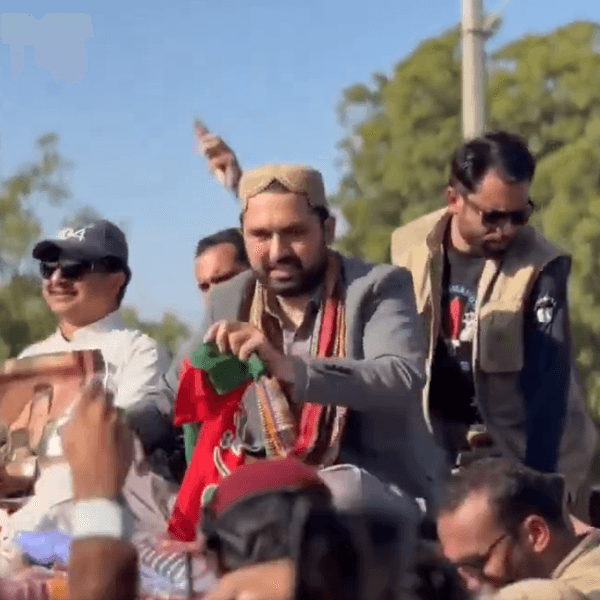Pakistani journalists fight back as govt tightens social media laws
PFUJ moves Islamabad High Court against the PECA amendment, calling it unconstitutional and oppressive

Aamir Abbasi
Editor, Islamabad
Aamir; a journalist with 15 years of experience, working in Newspaper, TV and Digital Media. Worked in Field, covered Big Legal Constitutional and Political Events in Pakistan since 2009 with Pakistan’s Top Media Organizations. Graduate of Quaid I Azam University Islamabad.

Javed Hussain
Correspondent
I have almost 20 years of experience in print, radio, and TV media. I started my career with "Daily Jang" after which I got the opportunity to work in FM 103, Radio Pakistan, News One, Ab Tak News, Dawn News TV, Dunya News, 92 News and regional channels Rohi TV, Apna Channel and Sach TV where I worked and gained experience in different areas of all three mediums. My journey from reporting to news anchor in these organisations was excellent. Now, I am working as a correspondent with Nukta in Islamabad, where I get the opportunity of in-depth journalism and storytelling while I am now covering parliamentary affairs, politics, and technology.

PFUJ contends that the changes impose severe restrictions on journalistic activities and enable government overreach in regulating online platforms.
Shutterstock
The Pakistan Federal Union of Journalists (PFUJ) filed on Thursday a petition in the Islamabad High Court (IHC) challenging the Prevention of Electronic Crimes Act (PECA) Amendment Act 2025, calling it a direct assault on press freedom and constitutional rights.
The petition, filed by PFUJ President Afzal Butt through advocate Imran Shafiq, argues that the amendment violates Articles 19 and 19-A of the Constitution, which guarantee freedom of expression and access to information.
The PFUJ contends that the changes impose severe restrictions on journalistic activities and enable government overreach in regulating online platforms.
“The amendment is unconstitutional and unlawful,” the petition states, urging the court to suspend and declare it void. The union warns that the law grants authorities unchecked power to block social media content and criminalize what it deems “false” or “fake” news without clear legal definitions, leading to arbitrary censorship.
What’s the controversy
The controversial bill, passed earlier by both the National Assembly and Senate, became a law following President Asif Ali Zardari’s assent. Critics argue that the amendments will be used to stifle dissent and restrict press freedom.
- YouTubewww.youtube.com
The bill includes provisions to tighten regulations on spreading fake news. It allows for penalties of up to three years in prison and fines of up to PKR 2 million. The legislation also establishes a nine-member Social Media Protection and Regulatory Authority (SMPRA), which will oversee compliance with the law.
The government defends the law as necessary to curb cybercrimes and misinformation. However, media watchdogs and opposition parties warn that it could be weaponized against journalists and political opponents.
The petition
The petition highlights the law’s broader implications, arguing that it infringes upon international human rights standards and significantly restricts digital freedoms in Pakistan.
The PFUJ asserts that the amendment establishes a regulatory authority with excessive power, allowing government agencies to access citizens' private data without prior notice or consent.
In a statement, PFUJ President Afzal Butt underscored the amendment’s dangerous implications, warning that it could be used to silence dissent and limit internet access at the state’s discretion. “Under this law, social media users may be required to obtain licenses to operate, further curtailing free expression,” he said.
Advocate Imran Shafiq also addressed the media, criticizing the law as an attempt to suppress free speech. “This amendment redefines social media platforms and gives the government unchecked authority over online spaces. It allows authorities to monitor and control content without any oversight,” he said.
Government defends amendments
Despite widespread criticism from press bodies and digital rights activists, the government has defended the law. Federal Minister for Information and Broadcasting Attaullah Tarar maintains that the law does not impact traditional media but aims to regulate social media platforms.
Speaking at a National Assembly Standing Committee meeting, Tarar insisted that digital laws exist worldwide and are necessary to prevent cybercrimes. He emphasized that journalists are included in the regulatory authority to ensure fair oversight.
Regarding social media regulations, Tarar reiterated that the PECA amendment was designed to protect citizens, not curtail press freedoms. “There are digital regulations and laws in place across the world. Any crime that occurs in the digital domain must be controlled,” he said.
However, critics argue that the amendment mirrors past efforts to control dissent under the pretext of national security and digital regulation. They warn that such laws could be used to intimidate independent journalists, activists, and opposition voices.
A muffled digital media?
Digital media in Pakistan has already been muffled with measures by telecom authorities to slow down internet speeds, and social media platform X has been blocked for more than a year.
Reporters Without Borders, an organization that defends press freedom, ranked Pakistan at number 152 out of 180 on its 2024 world Press Freedom Index.
The group also says Pakistan is one of the most dangerous places for journalists to work.







Comments
See what people are discussing